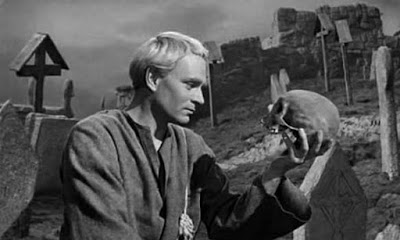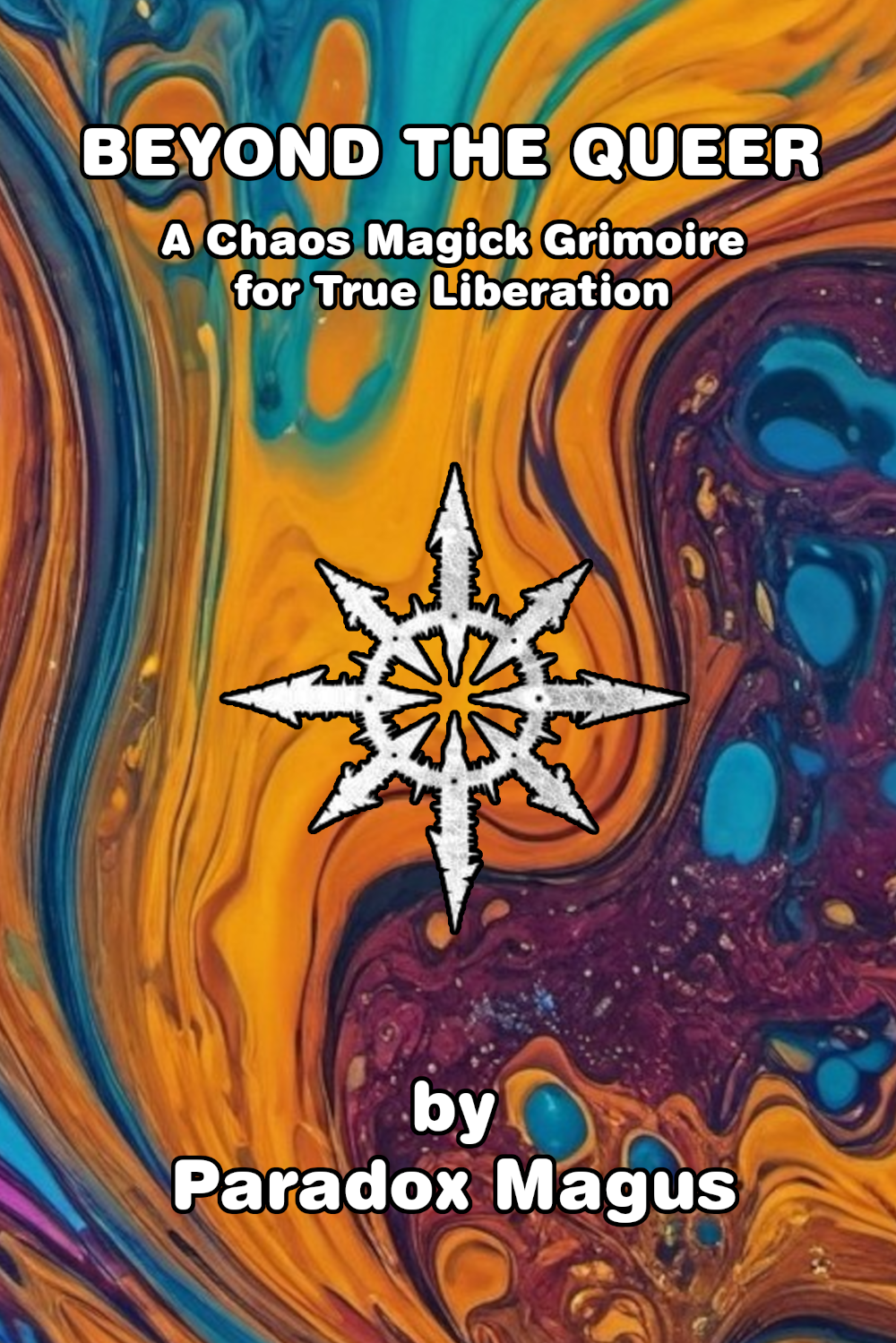This article is part of a series on Initiation. See them all in this section

Circe, whom Homer called "the dreadful goddess with human speech", after falling in love with Odysseus and finding him immune to her sorcery, warns him of his path:
“First you will come to the Sirens who enchant all who come near them. If any one unwarily draws in too close and hears the singing of the Sirens, his wife and children will never welcome him home again, for they sit in a green field and warble him to death with the sweetness of their song. There is a great heap of dead men’s bones lying all around, with the flesh still rotting off them. Therefore pass these Sirens by, and stop your men’s ears with wax that none of them may hear; but if you like you can listen yourself, for you may get the men to bind you as you stand upright on a cross piece half way up the mast, and they must lash the rope’s ends to the mast itself, that you may have the pleasure of listening. If you beg and pray the men to unloose you, then they must bind you faster.”
Ulysses will be tempted on his journey by the Sirens, with the risk of being destroyed if he brings his boat close to the rocks. Similarly, one who has passed through the Perilous Chapel will be tempted by a Siren. She is also considered a Vampire because of the way she may absorb the will of the Initiate, who should be heading towards the Angel whose Vision he obtained after finding the secret of the Chapel.
This ordeal is usually kept silent. Yet Aleister Crowley wrote about it on several occasions, albeit scattered throughout his works. Note the way some misogyny is mixed in; it is not unique to the male initiate, just as the sex of his mermaid depends on his sexual orientation. Thus, in Liber XXIV (De Nuptiis Secretis Deorum cum Omnibus), Crowley describes various forms of love between the earth and the heavens, concluding that:
“It is even said that to every Neophyte of the Order of A.’.A.’. appeareth a demon in the form of a woman to pervert him; within Our own knowledge have not less than nine brethren been utterly cast out thereby.”.
Also, in his Confessions, Crowley warns us that
“I believed then, and believe now, that the probationer of A.'. A.'. is nearly always offered the opportunity to betray the Order, just as the neophyte is nearly always tempted by a woman”.
He thus indicates it, pointing to The Book of the Law, I, 34, and the ordeals to which the Initiate will be subjected on his way of ascent. This will be the first of such ordeals - not initiations. He will also give a warning as to how it works, and that is that he who has lost his sight will not only stumble over something once, but will continue to stumble, again and again, until he regains his sight;.
Why does the Siren appear to tempt the initiate and divert him from his path? Is there some kind of will of the Universe that is putting him to the test?
Perhaps the answer is simpler. The appearance of the Siren is a direct consequence of what happened in the Perilous Chapel, in particular of the reality-creating energy which was released by the Initiate and which he did not redirect - nor did he have the capacity - to the proper place.
The Libido and the Siren
Under a Deleuzian/Lacanian conceptual framework, the libido unleashed once the Name of the Father has been expelled and Chapel Perilous has been successfully traversed, will continue to manifest realities around us. The subject has "traversed the phantom"; that is, he no longer ignores the presence of the Other -of Nuit- with the innocence of the neurotic - of the uninitiated. He now knows of its existence.
But the Initiate still seeks, perhaps by mere instinct, to protect himself from the destruction to which such an Other condemns him.
So despite the fact that the Other is absorbing his reality (or perhaps as a consequence of it) what he will do is to manifest something that resembles as much as possible that Other but without being it. And this will usually be a person who can be mistaken for the incarnation of the Other on earth, who can serve as a "phantom", to stand in the way and prevent the encounter with the dissolution that the presence of the real Other threatens.
To go forward, the Initiate must necessarily withdraw from that which consumes such energy, which is that which we call the Siren or the Vampire.
To fall forever into the arms of someone who seems to have been made just for you, or to give up everything and walk on alone. The only beacon illuminating the darkness, the uncertain chance of the kiss of Spirit.

strelitzia
The newly unleashed Libido will be channelled so that a person is manifested who, without being Nuit, is a convincing counterfeit. Thus the initiate may often think that he has found the love of his life, or almost a representative of the divine on earth.
The work towards the Angel involves the removal of neuroses, identities and astral wastes, so that nothing stands between the Initiate and Nuit. And the Líbido is an energy capable of creating particularly problematic realities when it is not directed towards Nuit (&ldquoAlso, take your fill and will of love as ye will, when, where and with whom ye will! But always unto me.” - Liber AL, I, 51).
Also in Liber AL I,52, Nuit says, “if the ritual be not ever unto me: then expect the direful judgments of Ra Hoor Khuit!”. That is, the condemnation that the life experience will bring to anyone who pretends to love Nuit in a human counterpart.
This point is developed by Crowley in the Liber Aleph, where he points to the metaphor of the story of Parsifal and Kundry (and, we should add, the importance of the symbolism of Amfortas' wound):
“Concerning the Love of Women, o my Son, it is written in The Book of the Law that all is Freedom, if it be done unto our Lady Nuit. Yet also there is this Consideration, that for every Parsifal there is a Kundry. Thou mayst eat a thousand Fruits of the Garden; but there is one Tree whose name for thee is Poison. In every great Initiation is an Ordeal, wherein appeareth a Siren or Vampire appointed to destroy the Candidate. I have myself witnessed the Blasting of not less than ten of my own Flowers”.
It is interesting how this text on the one hand makes an explicit link with the passage included above from Liber XXIV regarding the initiates lost by this event, but particularly the way in which Crowley here states that "in every great Initiation there is an Ordeal". This ordeal is to be understood as a "grounding" or a redirection to its proper goal of the energies released by the Initiation, which are the true confirmation of the attainment of the one who has passed the Initiation.
“To survive the vampire in the nephesh (Yesod), we must train ourselves to direct our sexual desires on our own symbols of primal gods. Liber Al, meditation, qabalah and ritual magic are life-savers to the initiate drowning in despair. Whatever rationale we need to tell ourselves will do, so long as the practices get done, the mind and body are disciplined for survival and the attachments to the vampire are broken.” -- Nemo Pandragon
If we follow Crowley literally, then we are dealing with a Vampire, a Demon that we must expel from our lives.
But we would err if we ascribe an intrinsic evil to the person who plays the role of the Vampire. It is rather the inevitable incompetence of the newly initiated that produces its manifestation. After all, could we truly consider the Vampire as a demon, when she is a person capable of resembling Nuit in the eyes of the Initiate?
In the aforementioned Liber Aleph, a clue is also given as to how to deal with this question beyond fleeing for the necessary renunciation of the influence of her sex: “Shall I not take this Vampire, if she be such, and master her and turn her o the Great End?”. There is no need to shut anyone from your life, as long as you cut the energy leak. You don't need to flee from the person over whom you are projecting your anima/animus, you just need to stop projecting it.
The encounter with this archetypal dilemma will also be featured as one of the stages of the monomyth, the journey of Joseph Campbell's hero. This is featured -again with quite an androcentric bias - with the title “woman as temptress”.
There is a strong temptation in this appearance of material and carnal victory. But this event is nothing other than the manifestation of that which the pre-initiation unconscious desires on earth, as well as the first stage of the encounter with a new archetype of the unconscious, the anima/animus. In practice, it functions as a test that tempts the Initiate to abandon the path after having already taken the first steps towards Spirit.
Thaw and resolve itself into a dew!”
Hamlet


